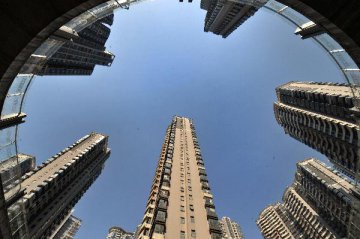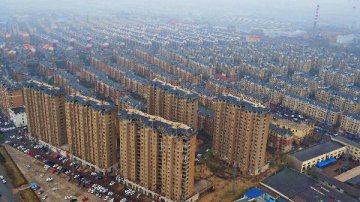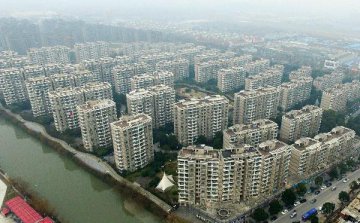
Lanzhou city, Gansu province will adjust the existing real estate regulation policy from today on. It will cancel restriction over house purchase in some regions and will prohibit people from selling houses which they own in core urban areas for less than 3 years. Zhang Dawei, chief analyst from Centaline Property, said that carrying out different policies in different cities highlights this round of real estate regulation and regulation by different categories is the keynote. Under requirements for stable and sound development of housing market in the future, government will implement several measures in one city. Taking Lanzhou for example, policies should be eased in regions with excessive housing inventories while regulations should be intensified in those with few inventories, which will meet overall requirements of the regulation.
Real estate development in Lanzhou areas varies a lot
On January 5, Lanzhou Housing Security and Real Estate Management Bureau, Lanzhou Price Bureau and Lanzhou Real Property Registration Bureau released a circular on strengthening real estate regulation in the city, effective from January 8. According to the circular, restriction over house purchase in Xigu district, Jiuzhou development zone and Gaoping will be cancelled. Policies stipulating that non-Lanzhou local households are allowed to buy one house at most in Chengguan district, Qilihe district and Anning district (including high-tech district and economic zone but excluding Yuzhong park in high-tech district) of Lanzhou city and Lanzhou households are allowed to buy two houses at most in these districts will continue, but they don’t have to provide certificates about social insurance and tax payment anymore.
According to statistics from Centaline Property, transaction amount of land traded in three counties and six districts of Lanzhou city totaled 13.458 billion yuan in 2017, up by about 31.63 percent from 2016. Specifically, main urban area of the city was sluggish but new areas became booming last year. Lanzhou New District saw the most new supply of commercial houses in 2017. Supplies of commercial houses reached 2.1094 million square meters, an increase of 423.81 percent from 402,700 square meters in 2016. This included 1.6729 million square meters of residential houses and 436,000 square meters of non-residential houses. Most of the commercial activities are residential houses, business and warehouse logistics.
Zhang Dawei analyzes that market inventories in Lanzhou are divergent. No inventories are available in the main urban area; while there are great supplies in suburb. To ease policies for areas with excess inventories and tighten policies for areas with few inventories is in line with the general direction of the housing market regulation.
Regulations may be more specific in the future
Statistics from Centaline Property shows that in 2017, nearly 110 cities and departments (above the county level) released real property regulatory policies for more than 270 times. Beijing, Shanghai, Guangzhou, Shenzhen, Hangzhou and Chengdu issued policies for many times. Beijing released real estate regulatory policies for more than 30 times.
Recently, some cities introduced measures for the demand side to expand house purchasers. Nanjing issued a document to allow graduate students, or undergraduate below 40 as well as skilled employees with senior professional and technical qualifications to register permanent residence first before finding a job.
Insiders said that by easing permanent residence registration, some people will be eligible to buy houses, which will help retain talents. Previously, Zhengzhou, Wuhan, Changsha and other places also introduced similar measures. Wuhan proposed to build and raise 2.5 million square meters of affordable housing for college graduates so that they could buy and recent houses at a price below 20 percent of the market price.
Zhang Dawei predicts that the housing market regulation in 2018 will maintain the overall direction of the previous regulation. Under the condition of smooth operation, one policy in one city and multiple policies in one city will become an important trend in the future.
(Translated by Vanessa Chen, Coral Zhong)























Latest comments